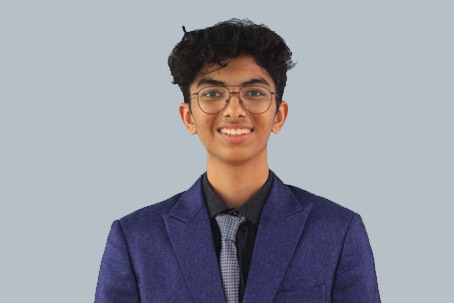
Deputy Secretary-General : Ayaan Shah
“Only by working together can countries fend off fragmentation and deepening crises.”
- Gordon Brown
Dear delegates and MUN directors,
Each generation of diplomats inherits a turbulent chapter in our erratic and unpredictable world. For some, the dominant force is war, for others, it is peace held by threads.
We are faced with a choice: to accept the realist view that peace is simply an armistice in preparation for the next war, or to embrace the liberal view that the utilitarian good requires the assistance of all.
But for us, the defining challenge is not a single crisis, it is the entanglement of many. Climate change no longer acts in isolation; it magnifies economic inequality. Political unrest catalyzes migration. Pandemics undermine international cooperation. In today’s global landscape, no issue exists in a vacuum. We live in an era of polycrisis.
The theme for DAIMUN 2025, Polycrisis: Navigating a New Global Order, reflects this reality. It acknowledges that the crises we face are no longer linear or compartmentalized, but interconnected, compounding, and cascading. It demands that we, as young leaders and delegates, resist the temptation to approach each global issue as a siloed problem, and instead consider the web of interdependence that binds them all. It calls upon us to build not just solutions, but systems—robust, adaptable, and empathetic.
DAIMUN has always been more than a simulation of diplomacy. It is a space where intellect meets empathy, where policy meets perspective, and where students from across the world meet to challenge each other and themselves. As Deputy Secretary-General, I have had the privilege of witnessing how this conference has grown—not just in scale, but in spirit. DAIMUN delegates no longer seek to merely imitate world leaders; they question them, critique them, and reimagine what global leadership could look like. And it is this spirit that we must carry with us as we tackle the complexity of polycrisis.
Our committees this year have been designed to reflect the multifaceted nature of global conflict and cooperation. From multilateral decision-making under strain to the resurgence of protectionism and digital authoritarianism, from environmental tipping points to the erosion of public trust—every agenda has been chosen to reflect a world grappling not with a single axis of instability, but with multiple mutually reinforcing ones. It is not enough to resolve a crisis. We must understand its roots, anticipate its ripples, and prepare for its recurrence in new forms.
And while this may seem daunting, it is also liberating. Because in complexity lies opportunity: the opportunity to forge connections across disciplines, borders, and ideologies; to break away from outdated paradigms and rigid blocs; to build a diplomacy that is more inclusive, more collaborative, and more future-facing.
The world is not waiting for our generation to come of age. It is already demanding our leadership. And though we may not yet have seats at negotiating tables, we do have platforms—platforms like DAIMUN, where we learn to speak with conviction, to listen with intention, and to negotiate with integrity.
To every delegate, I urge you: treat your voice as a tool, not a weapon. Recognize nuance, but do not hide behind it. Be bold in your thinking, but responsible in your action. For in a world shaped by polycrisis, the most powerful skill we can cultivate is not just diplomacy, but systems thinking guided by empathy.
I look forward to the depth of discussion, the diversity of thought, and the diplomacy of purpose that you will bring to this year’s conference. Let us not merely respond to polycrisis—let us reimagine the order that emerges from it.
On behalf of the entire Secretariat, welcome to DAIMUN 2025!
Warm Regards,
Ayaan Shah
Deputy Secretary-General
DAIMUN 2025